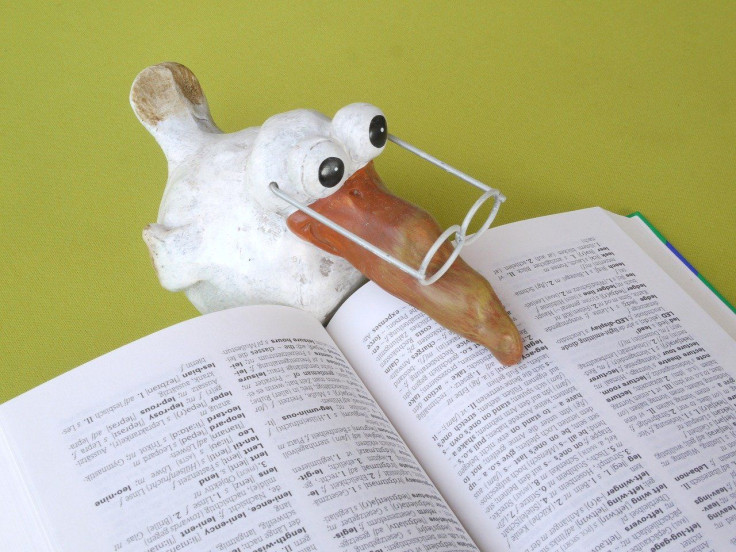National Word Nerd Day: 8 Interesting Words To Boost Your Vocabulary
National Word Nerd Day is observed on Jan. 9 every year, and it's the perfect time to celebrate the many wonderful words that we use in our daily lives, from simple to complex ones.
Words are the building blocks of human language, and they can sometimes even sum up events in human history. For instance, with so many events in 2020, the Oxford English Dictionary opted to have several "words of the year" instead of the usual one. It included the words "bushfire," "lockdown" and "BIPOC."
You need not have to be a word nerd to observe the day. People can celebrate this all-important part of our civilization by doing word-based activities like puzzles, mastering a new language, making up a new word, or perhaps learning new ones.
Here is a list of some interesting words that you can add to your vocabulary on National Word Nerd Day, courtesy Merriam-Webster Dictionary, Oxford University Press and Thought Catalog:
Octothorpe
Reportedly used in the 1970s, the word octothorpe refers to the symbol "#." Today, many people know the symbol as a "hashtag" or the number sign. This word is also rather unique because even Merriam-Webster is unsure why it's called as such, or even why the prefix -octo, which refers to eight, is in it. Who knows? Perhaps it would catch on again.
Biblioklept
A biblioklept is someone who steals books. In other words, a "book thief." Although "biblioklept" is a few syllables longer than just simply saying "book thief," Merriam-Webster notes that "words that are useless have the same rights of inclusion as do those that are useful."
Freegan
A combination of the words "free" and "vegan," a freegan is someone who thinks it's not right to throw away food while other people are starving. According to Oxford University, such people are sometimes referred to as "dumpster divers" because they will only eat food that they can get for free, often from the dumpsters of supermarkets.
Blatherskite
According to Thought Catalog, a blatherskite is someone who tends to ramble on and on "without making much sense." Perhaps blatherskites could get a pass on this day, so they can use all their favorite words.
Hellacious
As Oxford University explained, the term hellacious is used to describe an "awful experience" like a traffic jam or perhaps terrible weather. Collins Dictionary said it could also be used to mean "remarkable" or "astonishing."
Obelus
Obelus refers to the symbol ÷, which many know to be the division symbol. It can also be used to mark a "questionable passage of text." In Merriam-Webster, it can be seen to indicate a variant in the pronunciation of a word. For instance, the word "nuclear" in the dictionary could have (÷ -kyə-lər) another pronunciation that is considered "questionable or unacceptable" by some people, Merriam-Webster said.
Hothouse
The term hothouse is not exactly a new word but it now has another meaning apart from being a greenhouse where plants can grow. Today, the term hothouse can also be used to mean a place "that encourages the rapid development of ideas, emotions and knowledge," Oxford University said.
Bardolatry
The term "bardolatry" refers to a "humorous excessive admiration of Shakespeare." As funny as the name sounds, it's quite a fitting match for the day, because according to National Today, William Shakespeare actually introduced more than 1,700 words to the English language. Perhaps a little bardolatry wouldn't hurt on National Word Nerd Day.

© Copyright IBTimes 2025. All rights reserved.






















